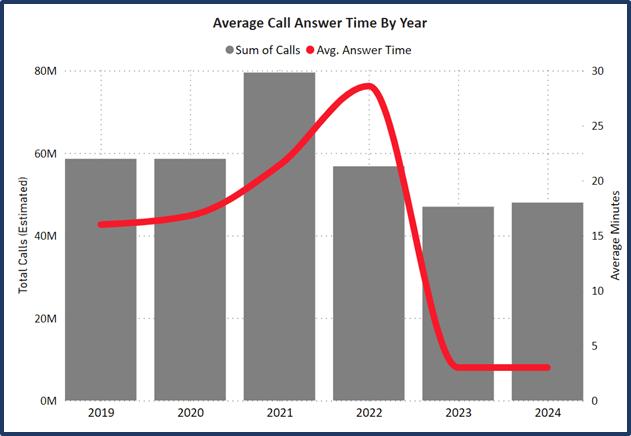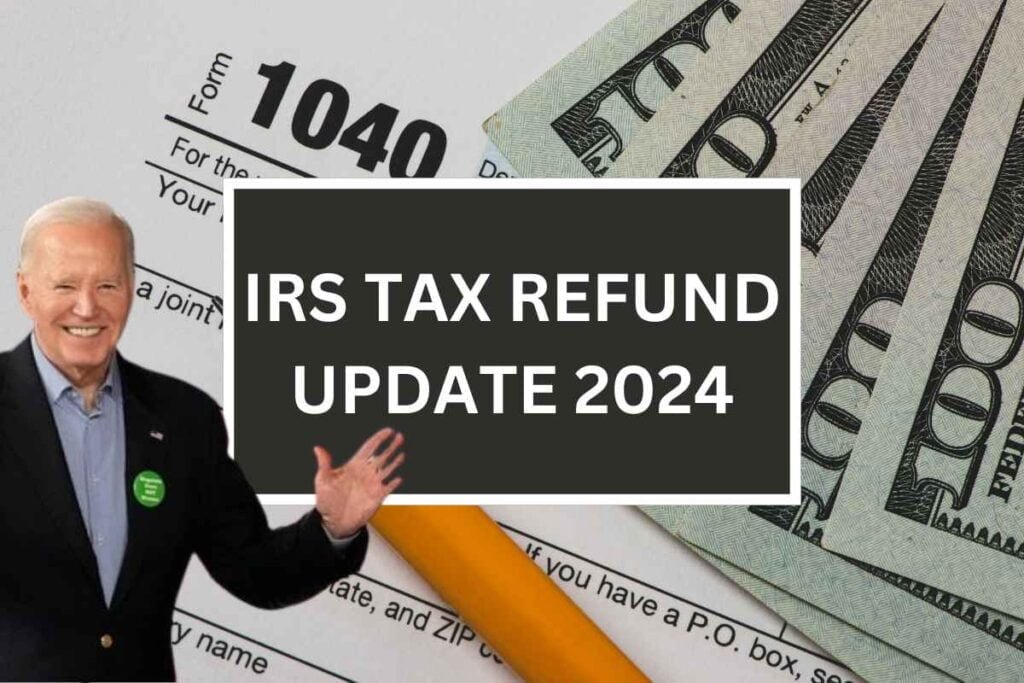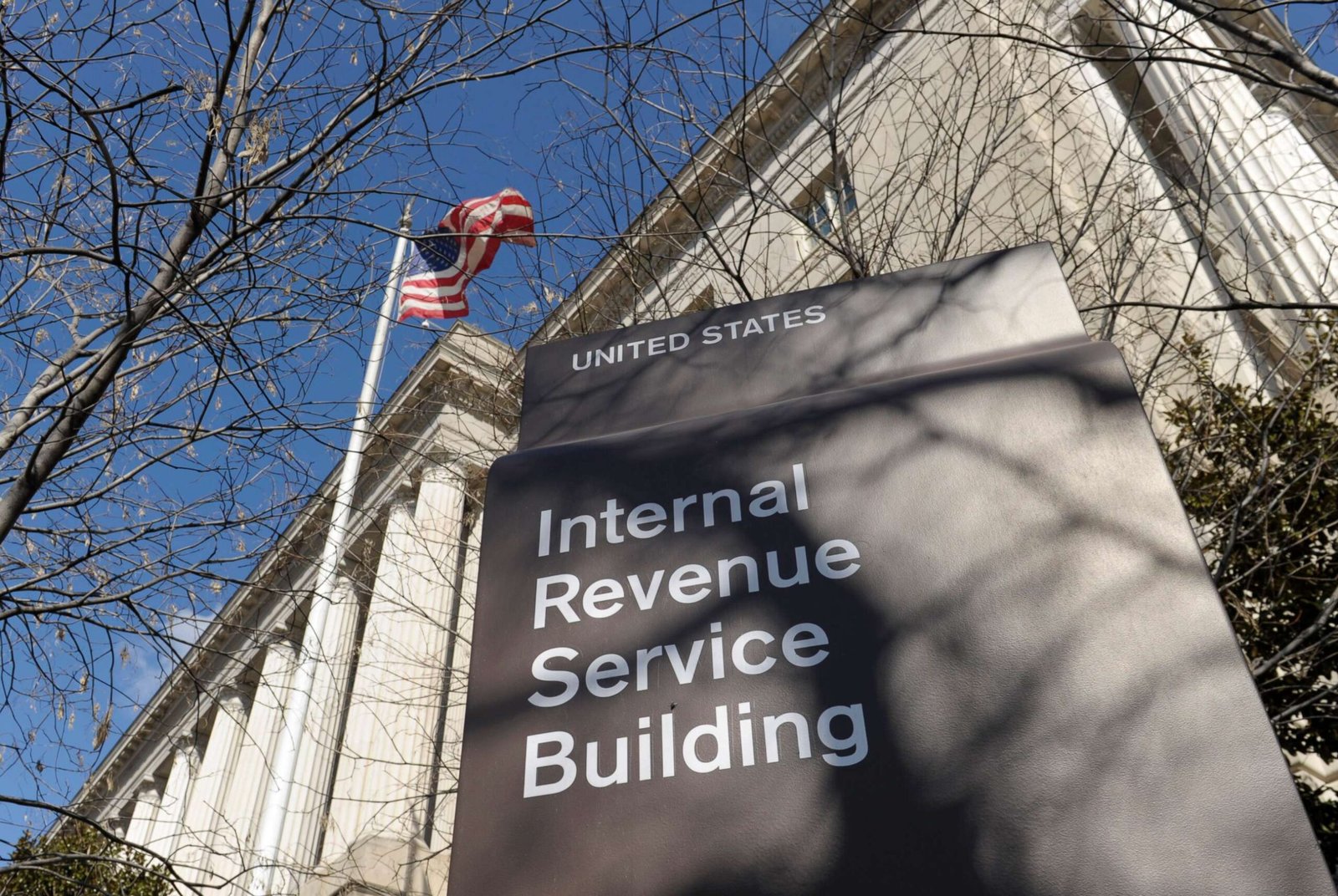Maybe you’ve noticed that your tax refund is taking longer than usual to arrive this year. Or perhaps you tried calling the IRS with some questions only to be stuck on endless hold. Well, you’re definitely not alone. The backlogs and delays have gotten so bad that the Treasury Secretary recently called out the IRS’s own labor unions as the ones responsible for blocking employees from returning to the office. Apparently there’s some major disagreement between union reps and management about COVID precautions and remote work policies. But while they duke it out, you’re the one left hanging. Read on to get the full scoop and decide for yourself who’s really to blame for the IRS logjam impacting millions of taxpayers like you.
Treasury Secretary Blames Unions for IRS Backlogs

According to Treasury Secretary Yellen, the IRS union is preventing employees from returning to work in person.
Secretary Yellen identified the National Treasury Employees Union (NTEU) as the main obstacle preventing the IRS from having at least half of its employees back in the office. The NTEU represents most IRS workers and has been hesitant to return to in-person work, citing health and safety concerns.
Backlogs and delays in processing tax returns and refunds.
With many IRS employees still working remotely, the agency has struggled to keep up with tax filings and refunds. The IRS typically sees a surge of activity during tax season from January through April, making this year particularly challenging with fewer employees working on-site. The agency currently has a backlog of over 35 million unprocessed tax returns according to recent estimates.
Calls for IRS workers to return to the office to improve productivity.
Some critics argue that having more IRS employees back in the office would help reduce backlogs and speed up processing times. Returning to in-person work may enable closer collaboration and oversight. However, the NTEU maintains that employee health and safety should be the top priority, especially for frontline workers interacting with the public. Requiring employees to return to work too quickly could put them at risk.
Resolution may require compromise from both sides.
Resolving the stalemate between the Treasury Department and the IRS union may require good-faith negotiation and compromise from both sides. A balanced solution should aim to improve IRS productivity and public services while also protecting employee wellbeing during this health crisis. With tax season in full swing, coming to an agreement soon is crucial to avoid further impacts on taxpayers.
Unions Push Back Against Return-to-Office Plans
The Treasury Secretary has accused federal employee unions of blocking efforts to transition workers back to in-person work. Unions represent nearly 900,000 public servants across various government agencies. They have pushed back against return-to-work directives, citing health and safety concerns.
Unions Advocate for Continued Remote Work
Major unions like the American Federation of Government Employees argue that remote work has been successful during the pandemic and that employees should have options to continue it post-pandemic. They say return-to-office mandates are unnecessary and that individual agencies should determine their own policies based on operational needs.
Concerns About Health, Productivity, and Work-Life Balance
Unions have raised concerns about risks of virus exposure in the workplace, drops in productivity from long commutes, and impacts on work-life balance. They say that for many government jobs, telework has proven effective and that employees should have flexibility in determining where they work. However, others argue that in-person collaboration and oversight are important for some roles.
Pushback Against Biden’s Call for Return to Normal
President Biden has pushed for a return to more normal in-person work conditions, but unions have resisted. They argue this should not be a “one-size-fits-all” policy and that remote or hybrid options should remain based on job requirements and employee needs. There are also concerns over lack of health precautions in some government buildings.
As the debate around return-to-office mandates continues, federal employee unions seem determined to advocate for worker flexibility and input. While operational effectiveness is important, unions say the wellbeing and work-life balance of employees should also be high priorities. A cooperative approach that addresses the concerns of both agencies and workers may be needed to find an agreeable solution.

IRS Workers Raise COVID-19 Concerns About in-Person Work
As the IRS begins transitioning employees back to the office, many have voiced worries about potential COVID-19 exposure. After over a year of maximum telework, shifting to full in-person work is understandably anxiety-inducing for some.
Safety Protocols and Accommodations
Commissioner Rettig has emphasized the importance of following recommended safety protocols like social distancing, frequent hand washing, and staying home if feeling ill. The IRS also continues to allow telework for employees at higher risk of severe illness.
Still, working in a physical office space with other staff increases the possibility of exposure. The confined areas of cubicles and limited airflow can make transmission more likely. Many IRS employees interact with the public directly too, heightening concerns.
Challenges of Transitioning Back
IRS employees have faced difficulties readjusting to office life after remote work for so long. Some cite long commutes, less flexibility in their schedules, and reduced productivity as challenges. The IRS should consider continuing partial telework and flexible schedules even after the pandemic to support employees.
Empowering Employees
Commissioner Rettig has said the IRS aims to empower employees to avoid in-person contact with taxpayers when possible during COVID-19. However, some staff have limited choice in directly interacting with the public. The IRS could do more to enable employees to choose telephone or correspondence contact over face-to-face meetings whenever feasible.
While the vaccine rollout brings hope, COVID-19 continues to pose risks as new variants emerge. The IRS must make employee health and safety a top priority by addressing concerns, allowing maximum flexibility, and limiting in-person interaction. With comprehensive safety plans and open communication, the IRS can build trust in employees during this transition.

IRS Processing Delays Causing Tax Refund Issues
The IRS has warned that tax refunds may face delays this year due to the ongoing COVID-19 pandemic. As the agency works to process a backlog of tax returns, some taxpayers may experience longer wait times for their refunds.
Paper Returns Take Longer
If you filed a paper tax return, expect processing to take several weeks longer than usual. The IRS has faced staffing shortages that are slowing down the handling of mail and paper returns. The agency normally issues more than 9 out of 10 refunds in less than 21 days, but paper filers will likely wait 6 to 8 weeks for their refund this year.
Review Process Can Take Months
Some tax returns go through an additional review process that can delay refunds by up to six months. The IRS reviews certain returns to verify information and check for errors or fraud. If your return is selected for review, processing may take 45 to 180 days. The IRS will send a letter notifying you of the review and requesting additional information. Unfortunately, there’s no way to speed up the review process. You’ll need to wait for the IRS to complete their verification.
You Can Check Refund Status
The best way to check on the status of your tax refund is by visiting IRS.gov/refunds or calling the automated refund hotline at 800-829-1954. Both options will provide an estimated refund issue date and the current stage of processing for your return. While waiting, be on alert for tax refund scams and phishing emails falsely claiming to be from the IRS. The IRS does not initiate contact with taxpayers by phone, email, text or social media to request personal or financial information.
The delays in processing tax returns and issuing refunds this year are frustrating, but unavoidable due to the challenges of operating during a pandemic. The IRS appreciates your patience as they work to issue refunds as quickly and accurately as possible. Regularly checking on your refund status and watching for signs of fraud can help ease anxiety as you wait.
FAQs on IRS Backlogs and Tax Filing Impacts
How long will it take the IRS to process my tax return?
The IRS is still facing delays in processing tax returns due to backlogs from previous filing seasons. As of June 2021, the agency had a backlog of about 400,000 unprocessed individual returns. The IRS aims to reduce this backlog in the coming months, but some taxpayers may experience longer than typical wait times for refunds and responses to correspondence. The agency recommends allowing extra time for the IRS to process returns and issue any refunds.
Will I face penalties for filing an amended return?
The IRS understands that some taxpayers may need to file amended returns to claim additional credits or deductions. Given the processing delays, the agency is waiving penalties for some amended returns filed by October 15, 2021 that are related to legislation passed in March 2021. This includes amendments claiming the Recovery Rebate Credit for missing stimulus payments. However, interest will still accrue on any balance due. Check with the IRS for the latest guidance on amended return penalties.
What can I do if the IRS has not processed my return?
Unfortunately, until the IRS works through its remaining backlog, there is little taxpayers can do to speed up the processing of their returns. However, you can check the status of your refund on IRS.gov using the Where’s My Refund? tool. If it has been more than 21 days since the IRS received your e-filed return or more than 6 weeks since mailing a paper return, you may call the IRS refund hotline. An IRS agent may be able to provide an update on your return.
The IRS appreciates the patience of taxpayers facing delays and difficulties this filing season. The agency is working hard to provide relief where possible and get operations back to normal levels. By planning ahead, staying up to date with the latest IRS guidance, and avoiding penalties where eligible, taxpayers can minimize the impacts of any processing delays on their financial well-being. With time and continued progress in reducing backlogs, most taxpayers should receive their refunds and account updates.
Conclusion
So there you have it. The unions are flexing their power to keep IRS workers at home while the rest of us have returned to the office. Maybe they’ve gotten too comfortable working in their PJs and don’t want to make the commute again. Or maybe there are legitimate COVID concerns among members. Either way, the unions hold the cards right now. The standoff continues with no end in sight. As tax season picks up, you can expect more delays and long hold times reaching the IRS. Just be patient and remember the folks answering the phones are doing their best, even if the higher-ups remain locked in a power struggle. Hopefully, they reach an agreement soon so we can all get our refunds processed!
















